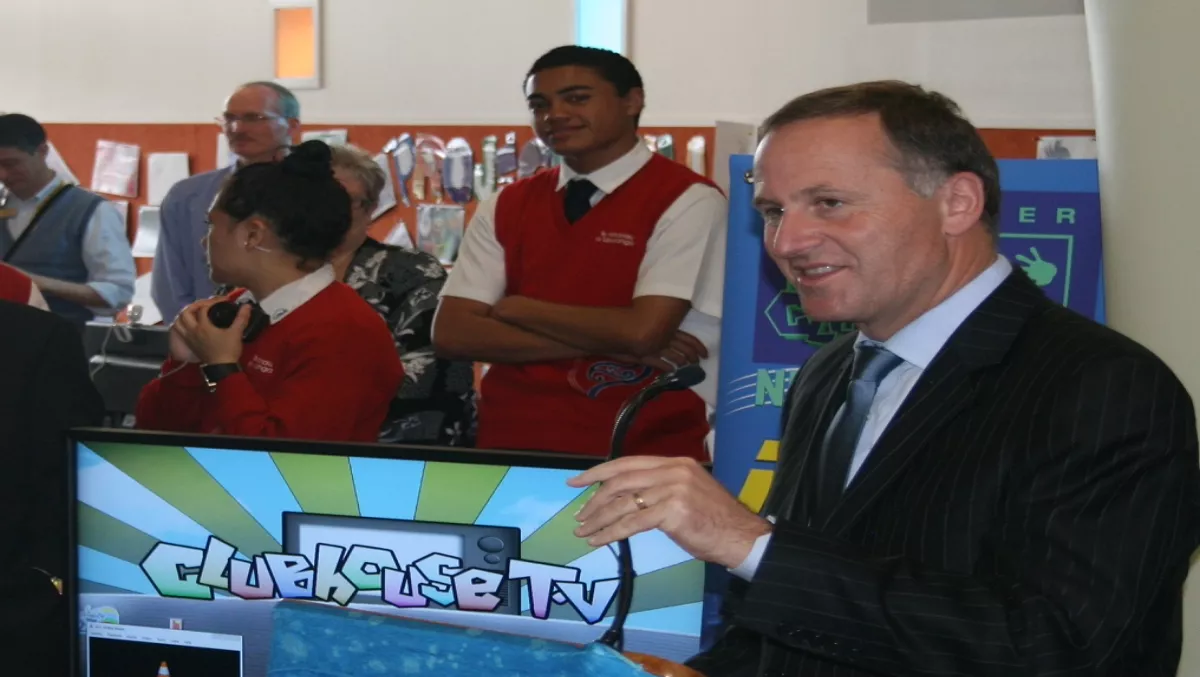
Ahead of today's budget policy statement, the government has been softening the public up to a new round of civil service cost-cutting and job losses.
Prime Minister John Key has floated the idea of replacing bureaucrats with technology, citing Air New Zealand's check-in kiosks as an example of how tech can boost efficiencies and productivity.
He also sees a big role for smartphones as a means for citizens to interact with government agencies.
"We want people to be able to deal with the government over a smartphone. We live in a world where the internet and 21st century is available,” Key told reporters on Monday.
Asked about how such initiatives would impact on the significant portion of the population who don't own smartphones, the PM admitted that was the case, but said the idea was that mobile access should be one of the options available to people wanting to deal with government.
"Our bigger issue really there is the cost of that technology and the security of that technology. They've been the two things that we've been asking ministers to test out and we had some discussions with people like Google when we were in the US last year who are starting to provide this capability on a bigger scale to other governments around the world.
The PM didn't offer any specifics when asked what services Google might be offering to provide the government, and who else internationally was using them.
There's no doubt that technology – and smartphone-enabled mobile technology in particular – will play an increasingly important role in the provision of government services in the years ahead.
But if cabinet ministers believe they can cut departmental budgets by embarking on a programme to swap frontline government staff with a handful of smartphone apps they are setting themselves up for disappointment.
Victoria University's professor of e-government, Miriam Lips, told Radio New Zealand's Nine to Noon programme that overseas experience showed governments who enhanced their technology actually ended up boosting face-to-face contact between citizens and officials, rather than cutting it.
"It's not just a case of pushing out a technology and then reducing staff,” she said.
"We really need to redesign and rethink the complete picture, so what staff are needed in a completely changed situation in which we deliver services to people, and that situation includes both from front office considerations and back office considerations. It may also require that staff members need to be trained differently to deal with these new situations.
Long term, such moves can lead to greater efficiency and cost savings, but they don't achieve budget savings in the short term, she said.
Speaking on the same show, technology consultant and commentator Nat Torkington said while smartphone apps offered a powerful tool for empowering citizens in their dealings with government, he agreed with Professor Lips' assessment.
"Looking at it purely from a cost point of view is tempting and I suspect that is the story that is being sold at the moment because the government has a big loud message about cutting costs and it really wants to get that message out,” he said.
The government's vision of making the most of smartphones is admirable, but let's hope the focus is indeed on "smart” rather than on penny-pinching.
As Torkington says, "It's not just a matter of taking something that's slow and clunky and making it slow and clunky on a cellphone. It's an opportunity to say: How do we want these things to work? What is the relationship that a citizen should have with the service that they're getting?
Image: John Key at a tech event just prior to the election last year.